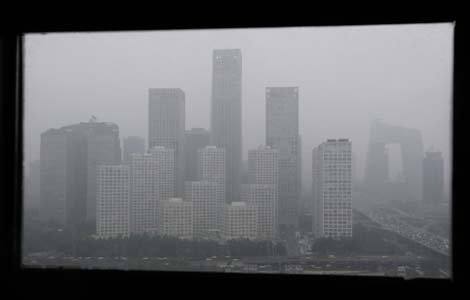Safety first for baby formula
Updated: 2013-07-10 08:10
(China Daily)
|
||||||||
For consumers, savings should not come at the expense of safety.
Swiss food giant Nestle and French food group Danone have announced they will cut the prices of some of their milk formula products by up to 20 percent in China after the country's recent anti-monopoly investigation. This is a move that certainly benefits consumers, as those best-selling products will become more affordable.
For Chinese consumers a number of domestic brands can hardly be trusted after repeated safety scares, despite strengthened regulation in the wake of the melamine-contaminated milk scandal that led to the death of six babies in 2008.
The latest safety concerns come from the results of laboratory tests conducted in Hong Kong. The tests, commissioned by the South China Morning Post, found three mainland formula products contained trans fatty acids, while two products of foreign brands did not.
However, results issued by the State food authorities yesterday show that more than 10,100 baby formula samples tested in recent years did contain trans fats, but they fell within normal levels set in line with national and international standards. Moreover, all of the 197 samples of foreign-brand imports contained safe levels of trans fats as well.
Trans fats are potentially capable of affecting brain and eye development, and long-term over-consumption can cause heart and circulatory diseases.
Admittedly, the levels of trans fats found in the tested products are within international safety standards. Still, given the potential harm of trans fats and the safety record of the industry in the mainland, the results of the tests are hardly good news to the public, though their concerns may be eased.
At present the mainland's laws do not require the trans fat content to be shown on the packaging, but this information should be made available to the public.
The regulators must pay more attention to quality issues so that producers can be put under stricter scrutiny.
Strengthened quality supervision is especially important considering China's diversified consumer structure and rapidly expanding market. Not all families are financially capable of affording expensive foreign brands, and any loopholes in milk quality regulation should be stemmed for the sake of public health.
(China Daily USA 07/10/2013 page11)

 China donates wax figure of Kim Jong-il to DPRK
China donates wax figure of Kim Jong-il to DPRK
 Thousands pay final tribute to US firemen
Thousands pay final tribute to US firemen
 Dozens feared dead in Quebec derailment
Dozens feared dead in Quebec derailment
 Breathe deep, this is the real thing
Breathe deep, this is the real thing
 Families of crash victims in SF
Families of crash victims in SF
 Rainstorms cause severe flooding and landslides
Rainstorms cause severe flooding and landslides
 Coal burning in China's north can shorten lives
Coal burning in China's north can shorten lives
 Some solar companies see brighter first half
Some solar companies see brighter first half
Most Viewed
Editor's Picks

|

|

|

|

|

|
Today's Top News
Pilots in air crash relied on automatic equipment
Chinese companies could face US delisting
High-level China-US talks to kick off
Watchdog: Trans-fat levels meet standards
IMF cuts China's, world's growth
Most passengers on crashed plane reported safe
Shenzhen Red Cross denies organ claim
Rainstorms cause severe flooding and landslides
US Weekly

|

|







